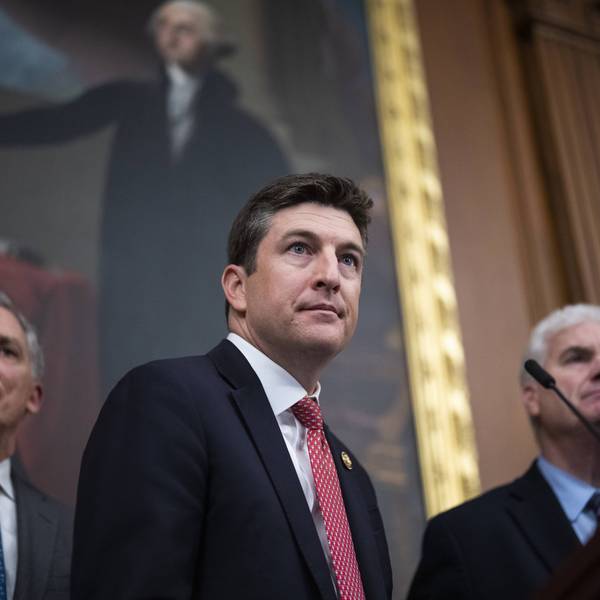Hours ahead of expected votes in the House and Senate on the Republican tax plan, a new poll released Tuesday by CNN shows that President Donald Trump's last hope at passing a major agenda item in 2017 will likely award him few points with voters. Sixty-six percent of those surveyed view the bill as mainly benefiting the wealthy.
Opposition to the bill--officially the "Tax Cuts and Jobs Act" but denounced as the "GOP Tax Scam" by critics--has gone up in the past month, with 55 percent saying they disapprove of the plan. Republicans including President Donald Trump have tried to push the narrative that the bill will lift middle class Americans, but it appears few voters are convinced--which makes sense given that nearly every independent analysis shows the benefits are wildly skewed to corporations and the rich.
As Congress headed for expected votes, constituents nationwide and advocacy groups kept up their momentum at protests directed at Republicans, several of whom are expected to receive their very own real estate tax breaks as a result of the legislation.
Protests were planned at the offices of Sen. Susan Collins (R-Maine), who announced Monday that she planned to support the bill, and on Wall Street, while People's Action urged supporters to continue calling their representatives to voice their opposition:
We have to make calls and tell every member of Congress that our lives are truly on the line. Our survival and that of our children are at risk.
We have to make sure they know that a vote for this tax plan is a vote against the people. There's still time to stop this bill, but it's not going to be easy. And that's exactly why we need all hands on deck.
Contact your Senators and Representatives using the Capitol switchboard by dialing 202-224-3121 NOW.
Several analyses by tax policy groups have shown that the bill would offer short-term, relatively minor benefits to the majority of Americans, while disproportionately benefiting corporations and the wealthiest households with permanent tax cuts.
The Tax Policy Center's latest analysis shows that under the bill, "higher income households receive larger average tax cuts as a percentage of after-tax income" and while average tax bills would go down for all income groups in 2018, millions of lower- and middle-class working families would actually see their taxes go up within a decade.
Americans for Tax Fairness reached similar conclusions in their analysis last month, reporting that 53 percent of the bill's tax cuts go to corporations and the rich, and that those cuts are largely paid for by taking away healthcare from working families.
House Speaker Paul Ryan (R-Wisc.) spoke on a radio show Monday about "entitlement reform"--slashes to Medicare, Medicaid, and Social Security--in order to tackle the national debt, which is expected to soar by $1.5 trillion as a result of the tax bill.




